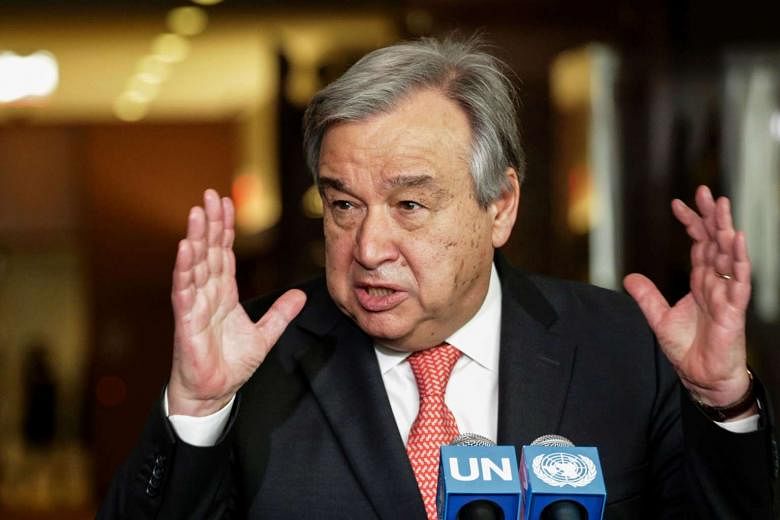NEW YORK (AFP) - Portugal's former prime minister Antonio Guterres held the lead in the race to be the next UN secretary-general after a second straw poll held Friday (Aug 5) that saw some shifts in support, diplomats said.
Guterres received 11 "encourage" votes, two "discourage" votes and two "no opinion" during the secret informal vote by the Security Council, a slightly weaker showing than in the first round last month.
During the closed-door meeting, the 15 members of the council were asked to indicate by ballot whether they "encourage", "discourage" or have "no opinion" of a candidate.
Serbia's former foreign minister Vuk Jeremic made a surprisingly strong showing, taking the second spot while Argentina's Foreign Minister Susana Malcorra climbed up the rankings, taking third place and becoming the leading woman in the race.
Guterres came out on top during the first round with 12 "encourage" votes and three "no opinion".
Diplomats speculated that one of the two negative votes cast in this round may have come from veto power Russia in a bid to block or slow down his lead.
Slovenia's ex-president Danilo Turk, who was the runner-up in the first round of voting, dropped to fourth place, and Unesco chief Irina Bokova of Bulgaria also fell from her third-place ranking to fifth place.
New Zealand's ex-prime minister and head of the UN Development Program, Helen Clark, also lost some ground, taking the number seven spot after Macedonia's ex-foreign minister Srgjan Kerim.
The shakeup in this round of voting suggests that the council is far from reaching a consensus on who should take the helm of the United Nations when Ban Ki-moon steps down.
Diplomats said some difficult negotiations lay head to agree on a candidate.
The last four spots went to former UN climate negotiator Cristina Figueres, ex-foreign minister Natalia Gherman of Moldova, Slovak Foreign Minister Miroslav Lajcak and Igor Luksic, a former acting prime minister of Montenegro.
Security Council members are facing calls to pick the first woman after eight men in the job, and to give preference to a candidate from eastern Europe, the only region that has yet to be represented in the post.
Of the 11 candidates, seven are from eastern Europe.
The secret vote caps a new, more open process that for the first time in the UN's history allowed candidates to appear at hearings to make their pitch for the top job before the General Assembly.
The results of the straw poll were not announced, but the council president communicated them to the candidates to give them an indication of the level of support in the council.
Some candidates privately said ahead of the vote that they would closely look at the results to decide whether to stay in the race.
Croatia's ex-foreign minister Vesna Pusic pulled out on Thursday after she picked up the lowest score in the first round.
More rounds of voting are expected in the coming weeks before the council agrees on a nominee, which could happen in October.
The new UN secretary-general will begin his or her five-year term on Jan 1.

